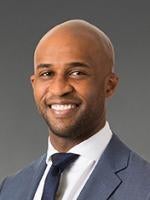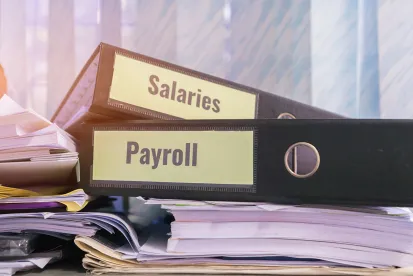Recent rulings from federal courts enjoined the US Small Business Administration (SBA) from applying its April 2, 2020 Interim Final Rule (April 2 IFR) to limit the types of businesses that can participate in the Paycheck Protection Program (PPP) under the Coronavirus Aid, Relief, and Economic Security Act (CARES Act). Some of these rulings are expressly limited to the named plaintiffs that had been denied PPP loans and do not directly impact any other businesses that have or might apply for a PPP loan. Irrespective of any limitations in these cases, such decisions may signal a broader trend. In increasing numbers, federal courts are agreeing with arguments made by small businesses facing COVID-19-related challenges that the SBA’s PPP business eligibility limitations are inconsistent with Congress’ intention to help “any business concern” during this unprecedented time.
Financial services businesses that are deemed ineligible under the April 2 IFR need to pay close attention to cases that challenge the SBA’s incorporation of its existing list of “prohibited businesses” into eligibility requirements for a PPP loan. Even without court rulings, it also is possible (although not likely) that Congress or the SBA could suspend or revise the April 2 IFR to broaden PPP eligibility to include some or all of the currently designated “prohibited businesses.”
This advisory will explore:
-
the SBA’s April 2 IFR restricted eligibility in the PPP to certain financial services businesses that were ineligible for SBA-guaranteed loans under existing federal programs;
-
a recent Sixth Circuit ruling challenging the April 2 IFR as well as other federal court cases may signal a trend by federal courts to adhere to the text of the CARES Act; and
-
whether other federal courts will follow the Sixth Circuit’s view, or whether Congress or the SBA will suspend or revise the April 2 IFR to broaden PPP eligibility.
The April 2 IFR and Subsequent SBA Rules and Guidance
The PPP was one of several measures enacted by Congress under the CARES Act to provide small businesses with support to cover payroll and certain other expenses for an eight-week period due to the economic effects of the COVID-19 pandemic. As noted in a prior Katten Financial Markets and Funds advisory, the SBA published the April 2 IFR on the evening before lenders could accept PPP applications, determining that various businesses, including some financial services business, were ineligible to apply for PPP loans under the CARES Act.1
The April 2 IFR limited the types of businesses eligible for the PPP by specifically incorporating an existing SBA regulation and guidance document that lists the types of businesses that are ineligible from applying for Section 7(a) SBA loans. In particular, the April 2 IFR provides, in part, that: “Businesses that are not eligible for PPP loans are identified in 13 CFR 120.110 and described further in SBA’s Standard Operating Procedure (SOP) 50 10, Subpart B, Chapter 2.”2
Some of the ineligible financial services businesses listed in the SBA’s Standard Operating Procedure 50 10 (SOP) include, without limitation:
- banks;
- life insurance companies (but not independent agents);
- finance companies;
- investment companies;
- certain passive businesses owned by developers and landlords, which do not actively use or occupy the assets acquired or improved with the loan proceeds, and/or which are primarily engaged in owning or purchasing real estate and leasing it for any purpose; and
- speculative businesses that primarily “purchas[e] and hold[ ] an item until the market price increases” or “engag[e] in a risky business for the chance of an unusually large profit.”
With respect to last category in this list, the SBA provided further clarity regarding certain investment businesses and speculative businesses that were applying for PPP loans. In an April 24, 2020 Interim Final Rule (April 24 IFR), the SBA expressly clarified that hedge funds and private equity firms are investment and speculative businesses and, therefore, are ineligible to receive PPP loans.3 However, the April 24 IFR created an exception for portfolio companies of private equity firms, which were deemed eligible for PPP loans if the entities met the requirements for affiliated borrowers under the April 2 IFR.4
Recent Sixth Circuit Case
As noted above, the SBA’s SOP did not only deem financial services businesses ineligible to receive PPP loans. Other types of businesses, including without limitation, legal gambling businesses, lobbying firms, businesses promoting religion and businesses providing “prurient sexual material” also were deemed ineligible. Believing that these limitations were inconsistent with a plain reading of the text of the CARES Act, some of these businesses have challenged the SBA’s restrictions imposed pursuant to the April 2 IFR.
On May 11, 2020, the US District Court for the Eastern District of Michigan preliminarily enjoined the SBA from enforcing the April 2 IFR to preclude sexually oriented businesses from PPP loans under the CARES Act.5 Plaintiffs were primarily businesses that provided lawful “clothed, semi-nude, and/or nude performance entertainment,” which were considered ineligible businesses for the PPP under the April 2 IFR due to their “prurient” nature.6 The district court found that the CARES Act specifically broadened the class of businesses that are PPP eligible,7 determining that it was clear from the text of the statute that Congress provided “support to all Americans employed by all small businesses.”8 The district court, however, limited the injunction to the plaintiffs and intervenors in the case, noting that it was “not a ‘nationwide injunction’ and did not restrict any future action the SBA may take in connection with applications for PPP loans.”9 The SBA appealed to the US Court of Appeals for the Sixth Circuit and requested a stay of the injunction.10
The Sixth Circuit ultimately denied the SBA’s stay, and agreed with the district court’s interpretation of the CARES Act’s eligibility requirements.11 Specifically, the Sixth Circuit held on May 15 that the CARES Act conferred eligibility to “any business concern,” which aligned with Congress’s intent to provide support to as many displaced American workers as possible. The SBA pointed out that the CARES Act explicitly listed “nonprofit organizations” as eligible for PPP loans, even though “they are ineligible for ordinary SBA loans.”12 The SBA argued that if Congress wanted to include previously ineligible businesses for PPP loans, like sexually oriented businesses, the CARES Act would have listed such entities.13 The Sixth Circuit stated that it was “necessary to specify non-profits because they are not businesses,” which further supported the district court’s expansive interpretation of the CARES Act.14
The Sixth Circuit’s opinion only requires the SBA to issue loans to the businesses that were a party to the underlying lawsuit. The ruling does not require the SBA to make PPP loans to any other businesses that are defined as ineligible in its April 2 IFR. However, as a practical matter, this opinion could be used to support a small business located in Ohio, Pennsylvania or Michigan (i.e., the states within the jurisdictional reach of the Sixth Circuit) in a federal court proceeding initiated prior to the submission of a PPP application requiring the SBA to defend its eligibility criteria in connection with such small business’s specific facts. (Note that an application should not be made without first obtaining a similar legal result as the small business applicant would not otherwise be able to make the certifications necessary to apply for a PPP loan.)
Cases in Other Circuits
In addition to the Sixth Circuit, several other federal courts have struck down the SBA’s imposition of its ineligibility criteria on PPP applicants engaged in sexually oriented businesses. For example, the US District Court for the Eastern District of Wisconsin on May 1 preliminarily enjoined the SBA from enforcing the April 2 IFR to preclude “erotic dance entertainment” companies from obtaining a PPP loan.15 The SBA argued that because Congress removed some conditions that would ordinarily apply to Section 7(a) SBA loans (such as the PPP eligibility for non-profits), “it must have intended for the SBA to enforce all other conditions.”16 Similar to the Sixth Circuit, the district court found the SBA’s interpretation “highly unlikely” given “Congress’s clear intent to extend PPP loans to all small businesses affected by the pandemic.”17 Additionally, the SBA failed to identify any purpose of either the CARES Act or Section 7(a) that is furthered by the SBA’s exclusion of sexually oriented businesses.18 The SBA appealed to the US Court of Appeals for the Seventh Circuit and requested a stay of the injunction pending appeal. The Seventh Circuit denied the request for a stay on May 20, 2020, but has yet to rule on the merits of the appeal.19
Implications
As of May 21, 2020, roughly $100 billion PPP funds are still available.20 In its recent statutory amendments to the PPP, Congress decided not to address PPP eligibility issues.21 Notwithstanding Congress's decision not to take action on these issues more recently, financial services businesses deemed ineligible under SBA regulations for PPP loans under the CARES Act should still pay close attention to these cases and whether federal court rulings influence Congress or the SBA to revisit the April 2 IFR.22
1 See US Small Business Administration, Interim Final Rule: Business Loan Program Temporary Changes; Paycheck Protection Program, 85 Fed. Reg. 20811, (Apr. 15, 2020).
2 See Interim Final Rule at 8, citing 13 C.F.R. § 120.110 and Small Business Administration Standard Operating Procedure 50 10 Subpart B, Chapter 2.
3 See US Small Business Administration, Interim Final Rule: Business Loan Program Temporary Changes; Paycheck Protection Program – Requirements – Promissory Notes, Authorizations, Affiliation, and Eligibility, __ Fed. Reg.___, available.
4 According to the April 24 interim final rule, the affiliation requirements are waived if “the borrower receives financial assistance from an SBA-licensed Small Business Investment Company (SBIC) in any amount. This includes any type of financing listed in 13 CFR 107.50, such as loans, debt with equity features, equity, and guarantees. Affiliation is waived even if the borrower has investment from other non-SBIC investors.” Id.
5 DV Diamond Club of Flint, LLC, et al. v. SBA, et al., No. 20-1437 (6th Cir. Apr. 15, 2020).
6 Id. at 2.
7 DV Diamond Club of Flint LLC v. SBA, No. 20-cv-10899 (E.D. Mich. May 11, 2020), at 2. The district court stated that 15 U.S.C. § 636(a)(36)(D) of the CARES Act specifically “broadened the class of businesses that are eligible to receive SBA financial assistance.” Id. at 9. This section provides, in relevant part, that “‘[d]uring the covered period, in addition to small business concerns, any business concern . . . shall be eligible to receive a covered [i.e., SBA-guaranteed] loan’ if the business employs less than 500 employees or if the business employs less than the size standard in number of employees for the industry,” which is established by the SBA. Id. See also 15 U.S.C. §§ 636(a)(36)(D)(i)(I)-(II).
8 DV Diamond Club, No. 20-cv-10899 (E.D. Mich. May 11, 2020), at 2.
9 Id. at 45.
10 DV Diamond Club, No. 20-1437 (6th Cir. Apr. 15, 2020), at 1.
11 Id. at 4. The Sixth Circuit interpreted the CARES Act under the Supreme Court’s ruling in Chevron, U.S.A., Inc. v. Natural Res. Defense Council, Inc., 467 U.S. 837 (1984). Id. In Chevron, the Supreme Court stated that if a federal statute can be facially interpreted, “the court, as well as the agency, must give effect to the unambiguously expressed intent of Congress.” Chevron, 467 U.S. at 842–43.
12 DV Diamond Club, No. 20-1437 (6th Cir. Apr. 15, 2020), at 5.
13 Id.
14 Id. US Circuit Judge Eugene E. Siler Jr. dissented, stating that the CARES Act was ambiguous and the district court's injunction should be stayed to give time to decide on the merits. Id. at 6. He noted that the CARES Act requires “PPP loans to be administered ‘under the same terms, conditions and processes’” as the SBA’s section 7(a) loans, which would exclude sexually oriented businesses from PPP eligibility. Id. See also 15 U.S.C. § 636(a)(36)(B).
15 Camelot Banquet Rooms, Inc., et al. v. SBA, et al., No. 20-C-061 (E.D. Wis. May 1, 2020), at 27-28. A similar case, filed early May 2020, is currently pending in the US District Court for the Northern District of Illinois. See Admiral Theatre Inc. v. SBA et al., No. 1:20-cv-02807 (N.D. Ill May 8, 2020).
16 Camelot Banquet Rooms, No. 20-C-061 (E.D. Wis. May 1, 2010), at 15.
17 Id. at 16. In contrast to the Eastern District of Michigan, the Wisconsin federal court did not explicitly limit its injunction to the parties. In light of the potentially serious penalties for ineligible applicants, businesses that are ineligible for the PPP under the April 2 IFR should be cautious about applying for a PPP loan without exploring all options and consequences with counsel.
18 Id.
19Camelot Banquet Rooms, Inc., et al. v. SBA, et al., No. 20-1729 (7th Cir. May 20, 2020). In contrast to the Sixth and Seventh Circuit rulings, the US District Court for the District of Columbia denied an injunction to enjoin the SBA from making an eligibility determination for the PPP under the CARES Act. Am. Ass'n of Political Consultants v. SBA, No. 20-970 (D.D.C. April 21, 2020). Plaintiffs, a trade association of political consultants and lobbyists, argued that the denial of PPP loans under the SBA’s April 2 IFR due to the political nature of their businesses violated plaintiffs’ First Amendment rights. Id. at 1-2. The district court ruled that it was constitutionally valid for the SBA to decide “what industries to stimulate” with PPP loans. Id. at 11. The plaintiffs filed a notice of appeal on April 22, 2020. Am. Ass'n of Political Consultants, Notice of Appeal, ECF No. 22 (D.D.C. April 22, 2020).
20 Kate Rogers, More than half of small businesses are looking to have PPP funds forgiven, survey says, CNBC News (May 21, 2020), available at https://www.cnbc.com/2020/05/21/more-than-half-of-small-businesses-are-looking-for-ppp-forgiveness.html.
21 On June 3, 2020, Congress passed the Paycheck Protection Program Flexibility Act (“PPP Flexibility Act”), which modified certain provisions of the PPP. H.R. 7010, 116th Cong. (2020), available at https://www.congress.gov/bill/116th-congress/house-bill/7010/text?r=12&s=1. At a high level, the PPP Flexibility Act: 1) extends the PPP to December 31, 2020; 2) extends the covered period for purposes of loan forgiveness from 8 weeks to the earlier of 24 weeks or December 31, 2020; 3) extends the covered period for purposes of loan forgiveness from 8 weeks to the earlier of 24 weeks or December 31, 2020; 4) increases the current limit on non-payroll expenses from 25% to 40%; 5) extends the maturity date on the portion of a PPP loan that is not forgiven from 2 years to 5 years; and 6) defers payroll taxes for businesses that take PPP loans.
22 IFRs are subject to public comment under the Administrative Procedures Act. The particular comment period of the April 2 IFR expired on May 15, 2020.







 />i
/>i
